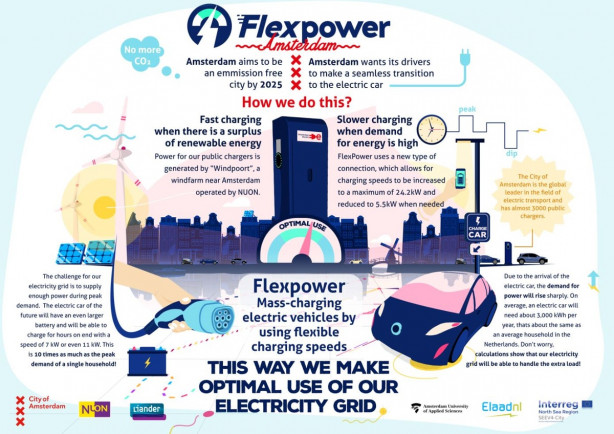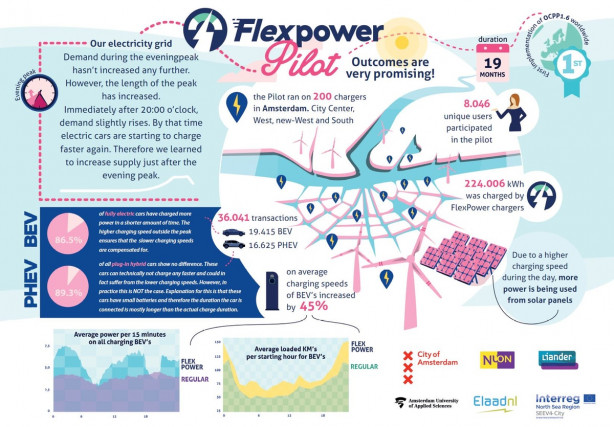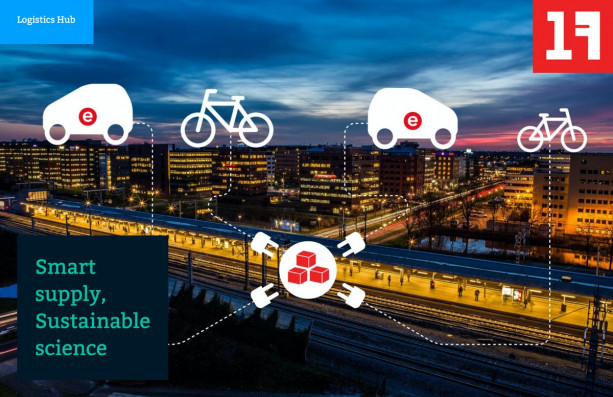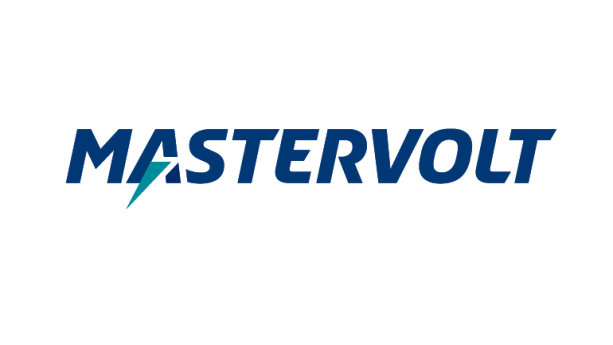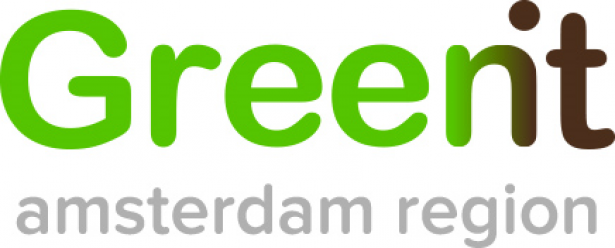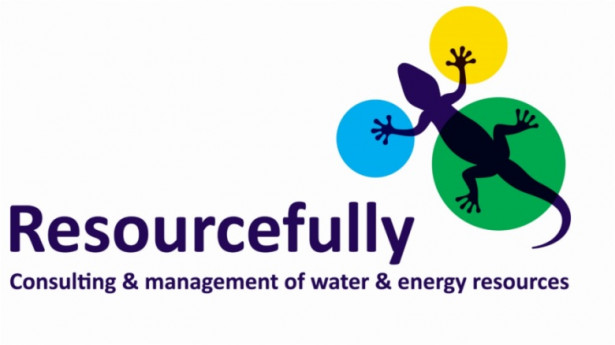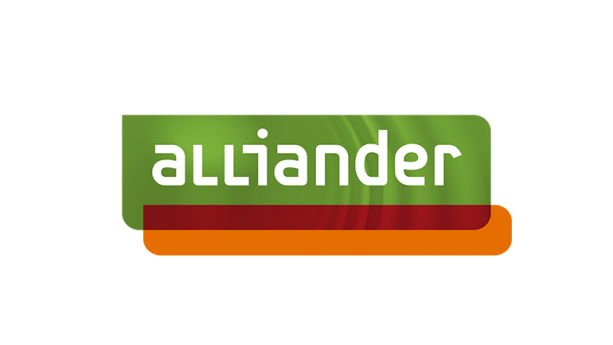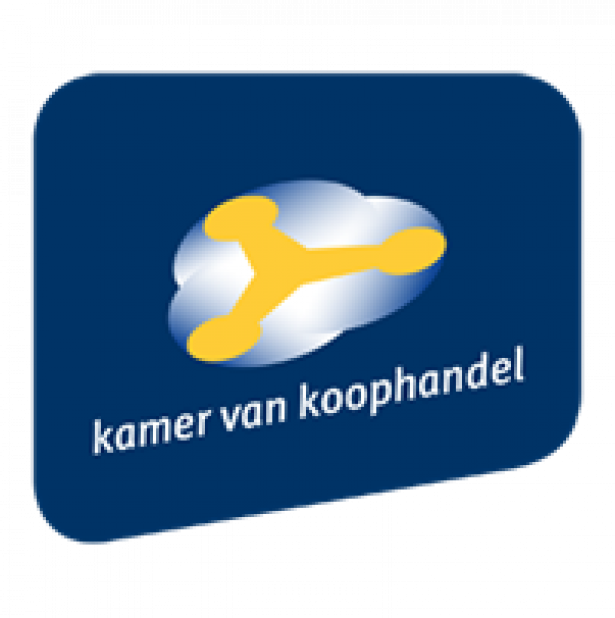Stay in the know on all smart updates of your favorite topics.
Circular Challenge: How Can We Stimulate Circular Business Models in the Electric Vehicle Charging Infrastructure Chain?
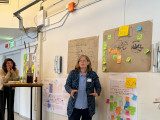
Circular initiatives often struggle to progress beyond the pilot phase, including circular charging infrastructure. Numerous barriers hinder these circular initiatives:
• Lack of data on products and how circular/sustainable they are.
• Difficulty in implementing circularity across the entire production chain.
• Regulatory obstacles.
• Current higher costs associated with circular production, leading to more expensive products.
To overcome these barriers, adjustments to regulations are necessary to better align with circular initiatives, alongside the establishment of shared ownership within the production chain.
SESA project – Smart Energy Solutions for Africa to accelerate the green transition and energy access

Context
Africa is the fasted growing continent on the planet, measured both in GDP as in population, which historically is accompanied with a growth in energy consumption. With an eye on the Paris Agreement and COP26 it is clear the energy should be Low or even Zero Emission. However, it is important this does not stifle the economic growth allowing millions to climb out of poverty. With this in mind the EU funded the SESA project that aims at mitigating climate change while improving access to sustainable energy under affordable, reliable conditions.
Project brief
SESA is a four-year (2021-2025) EU H2020 funded R&D project designed to combine innovative energy access solutions for a range of applications in both urbanised and rural contexts in Africa. These solutions will include decentralised renewables (solar photovoltaics), innovative energy storage systems (including second life batteries), waste-to-energy systems (biomass to biogas), smart microgrids, (micro) mobility solutions, climate-proofing, resilience and adaptation, and rural internet access.
SESA focusses on testing, validating and replicating those energy innovations through co-developed demonstration actions in 9 sites across the continent (1 Living Lab for testing, 4 for validation and 4 for replication).
The collaborative project is the result of a strong partnership between leading European and African universities, research centres, industry actors, local governments, knowledge and implementation organizations and networks.
Objectives
The main goal of SESA is to support a diversity of affordable solutions that help provide access to reliable, affordable, and sustainable energy services for all, creating new business opportunities and developing concepts that can directly contribute to a low-carbon development. It further provides policy makers with recommendations aiming at creating a favourable regulatory environment to ensure long-term impacts of the solutions developed. In addition, a key deliverable for the project is the SESA Toolbox, which will contain materials relating to the following main building blocks:
- Impact assessment
- Capacity building
- Business plans and models
- Innovations tested in demonstration actions
- Design, operations and management for different solutions
- Financing & funding options
- Policy support
Cenex NL’s key contributions
Cenex NL leads the work package responsible for the development of the key repository of the project, the so called “SESA Toolbox”, and the evaluation of the project results available in the toolbox. Our team will be involved in three tasks:
- Build a scalable and harmonised toolbox for advanced implementation, management and operation strategies of efficient sustainable energy solutions.
- Develop an evaluation framework based on the Life Cycle Assessment (LCA) methodology to quantify and compare the environmental impacts of the proposed solutions.
- Assess the impact of the solutions developed in at least five the demonstration and validation projects using the framework developed in the previous task.
This project has received funding from the European Union’s Horizon 2020 research and innovation progamme under grant agreement No 101037141
CleanMobilEnergy – A Smart Energy Management System integrating renewable energy and electric vehicles.

Across North West Europe, cities are increasingly investing in renewable energy production and charging infrastructure for electric vehicles. However, the control systems for energy generation, energy utilisation, energy storage and electric vehicle charging work are currently separate from each other. This results in high costs and CO2 emissions due to energy inefficiencies.
Electric vehicles are mostly powered by fossil fuel generated electricity. At the same time, renewable energy is inefficiently utilised because production and demand are not synchronised across the city.
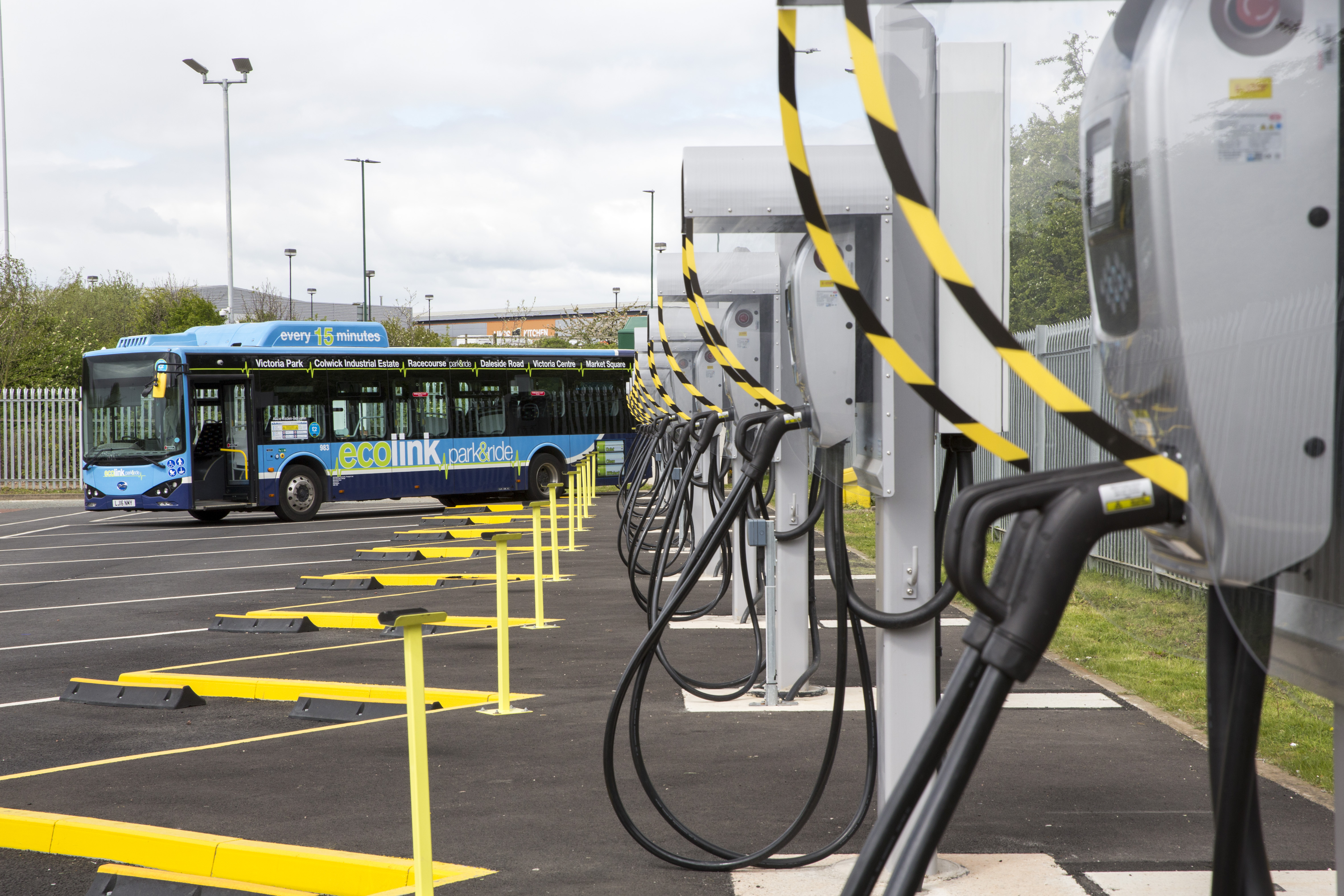
The project CleanMobilEnergy will integrate various renewable energy sources, storage devices, electric vehicles and optimisation of energy consumption through one unique smart energy management system. The development of this intelligent Energy Management System (iEMS) will increase the economic value of renewable energy and significantly reduce CO2 emissions.
The iEMS will assure the smart integration through interoperability based on open standards for data flows and analysis tools.CleanMobilEnergy will make it possible for renewable energy sources to be used locally, so electric vehicles can be charged with 100 % renewable energy offered at an optimum price. Electrical energy from the grid will only be required when prices are low or renewable energy sources are not available, the iEMS monitors and optimises the system 24hours a day, 7 days a week.
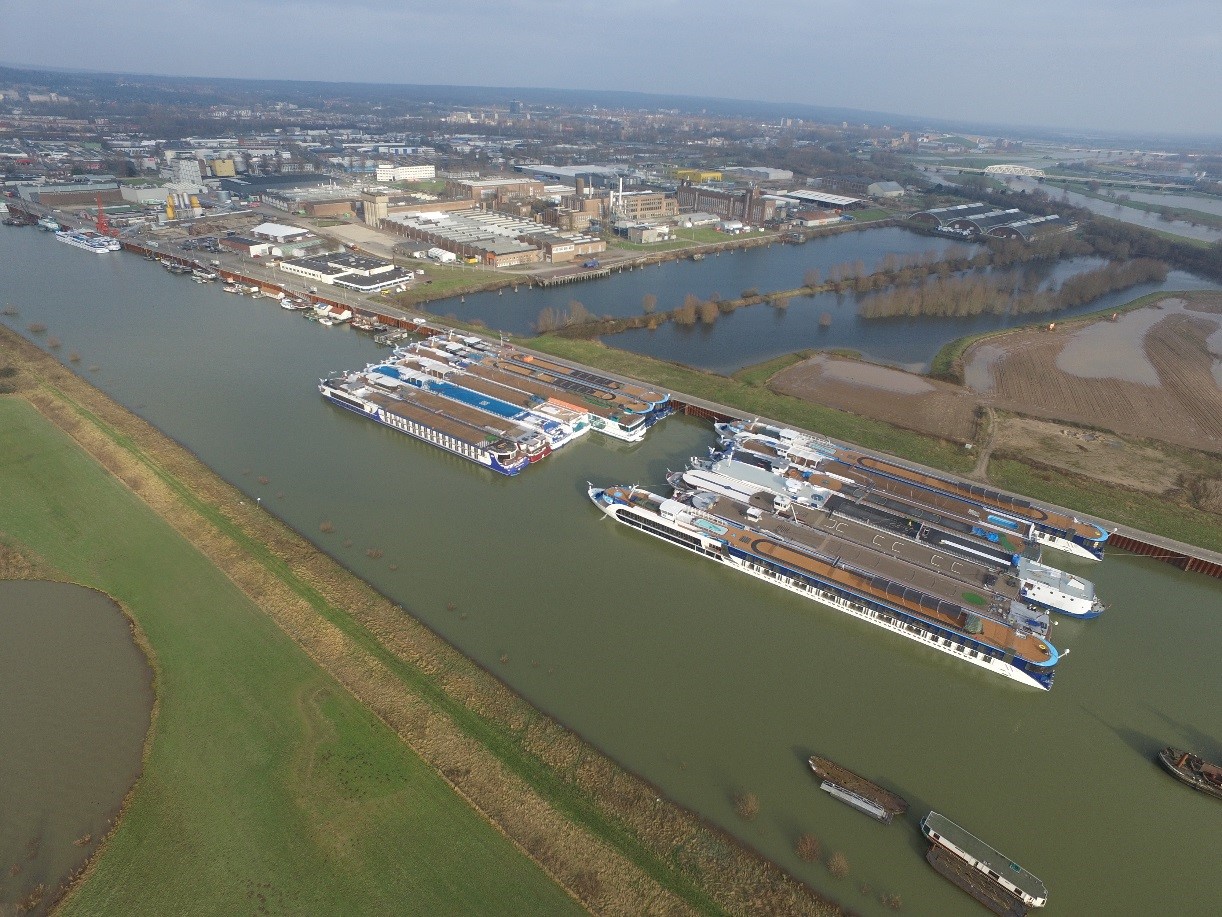
One generic transnational iEMS will be adapted to the 4 specific City Pilots, in Arnhem, London, Schwäbisch Gmünd and Nottingham. These pilots range from small towns to large cities. The 4 City pilots cover different types of renewable energy, storage and electric vehicles as well as different contexts and diverse city environments.
The City Pilots will utilise different state-of-the-art storage media in various environments, which are representative of North West Europe and are easily replicated in other cities across Europe. Specifically in London and Nottingham, for example, electric vehicles themselves will be used to power the buildings and depot by using innovative bi-directional chargers controlled by the integrated energy management system iEMS.
In Arnhem, on the other hand, renewable energy will be supplied to ships in the harbour adjacent to its industrial area. These pilots were chosen to represent a wide range of city sizes and environments, which are essential to developing a widely applicable system for future implementation across Europe.
LEVIS: Advanced Light materials for sustainable Electrical Vehicles by Integration of eco-design and circular economy Strategies
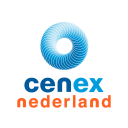
The automotive sector is the second largest contributor to CO2 emissions globally. Even though car manufacturers push forward the development of electric vehicles (EVs), the current market penetration is still relatively low. Developing lightweight materials is an essential step to increase EV adaptation since a reduced weight results in improved vehicle efficiency and increased range.
Wicked Problems
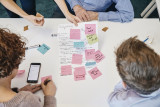
Te wicked? Niet voor ons.
Wij werken allemaal aan urgente, complexe, maatschappelijke uitdagingen. Issues die schier onoplosbaar lijken, van dilemma’s en paradoxen omgeven, nog niet duidelijk hoe het moet. Wel is duidelijk dát het moet, dat we elkaar nodig
hebben en dat we er NU aan moeten beginnen. Om met de woorden van Jan Rotmans te spreken; we leven niet in een tijdperk van verandering maar in een verandering van tijdperk. En hier hoort een nieuwe gereedschapskist bij.
En of je nou aan energietransitie werkt, andere mobiliteitssystemen, creëren van waterstofhubs, peer to peer autodeelsystemen, het maakt niet uit, we zien dat al deze opgaven op enig moment tegen gelijksoortige barrières aanlopen. Op samenwerking, financiering, privacy, onvoldoende aansluiting op de maatschappij, om maar een paar voorbeelden te noemen.
Unieke samenwerking
Als Amsterdam Smart City netwerk willen en kunnen we deze opgaven niet laten liggen. Door het bundelen van onze kennis en expertise kunnen we als netwerk iets unieks bieden en de wil en durf tonen om deze barrières te doorbreken. De betrokken partners die dit uitdenken en begeleiden zijn RHDHV, Kennisland, Drift, NEMO, Arcadis, Alliander, HvA en Metabolic. Zij bundelen hun expertise en ervaring om de echte vragen boven tafel te krijgen, tot nieuwe manieren van samenwerken te komen en barrières te doorbreken. We richten ons met name op de start van de samenwerking. Gezamenlijk ontwikkelen we een ‘wicked problem aanpak’. Op een nieuwe manier, lerend door te doen, exploratief.
Waar moet je aan denken?
Wat is eigenlijk het echte probleem? Wiens probleem is dit? Hoe kijken anderen er tegenaan? Welke andere partijen lijken nodig? Hoe vind je ze? Hoe ga je om met eigenaarschap en botsende frames? Hoe zorg je dat je al in
een vroeg stadium de maatschappij (bewoners, ondernemers, werknemers, etc) betrekt en hun ervaringen in het project trekt? Het wicked problem team zet nieuwe methoden in voor het beantwoorden van deze vragen. En het creëren van de benodigde commitment om het vraagstuk aan te pakken. Niets staat van te voren vast, want we passen ons aan aan wat we tegenkomen. Met elkaar ontwikkelen we een nieuwe aanpak om de barrières te doorbreken.
EC-Link Platform

You would like to connect with Urban Environmental Sustainability practitioners and researchers in China and exchange your approaches to green transport, clean energy, compact urban development, water and solid waste management, green buildings and municipal finance? Then sign up to the EC-Link platform! The platform links Eco Cities across Europe and China, offering inspiring examples from both sides of Eurasia and enabling direct contacts to the innovators. With the help of an integrated translation tool, posts can be translated into Chinese and English with just one click. Use of the platform is free of charge: http://eclink.org/bbs/#/?lang=en
A description of how the platform works can be downloaded here: http://eclink.org/ec_platform/upload/document/EC-Link_Users'%20Guide-EN.pdf
Locate Nearest EV Charger

shahnat App has been developed and launched to help people making easy living with the electric vehicles by being able to discover the charging network in their cities
Witkar
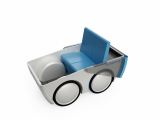
Oplossing voor first en last mile
Check the video footage from 1974:
English
Nederlands
Program Smart Mobility Amsterdam 2019 - 2025
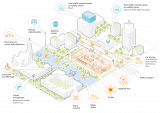
An accessible, liveable and less polluted city: this is what we’d like to achieve for residents, visitors and businesses in Amsterdam today and for future generations. Smarter and cleaner mobility can help us realise these aims. As a city, we want to offer Amsterdammers, commuters and visitors alternatives to the present forms of mobility, providing a door-to-door solution and contributing to our aims. This includes shared electric transport, from cars to bikes, in ‘Neighbourhood eHubs’ (eBuurthubs) established in cooperation with local residents. That way, we can use clean modes of transport and create more space in the city by sharing. We can then use this extra space to improve liveability.
More info and link to the program via www.amsterdam.nl/smartmobility
Check the report:
https://www.amsterdam.nl/wonen-leefomgeving/innovatie/smart-mobility
Actions
To achieve the ambitions, we will start working with two program lines:
1. Data and digitization
This program line helps the municipal organization digital tools and skills to ensure sufficient control in the future be able to rely on mobility in the city and around
improve quality in public spaces. We are working towards a mobility center of the
future. For this we will use the take the following steps:
• A shared basis: building a strong one data position
• A level playing field: frameworks
• Learning by doing: from traffic management to mobility management
• Ready for the future: aware of the consequences of digitization of mobility
2. Innovative mobility solutions
In this program we work together on concrete smart and clean alternatives to transport, so that Amsterdammers and visitors to the city are less dependent on their own car. We do this by setting up projects in certain urban areas and for specific target groups. We also focus on smart city logistics and we explore the possibilities of transport by water and air. Special attention is given to vulnerable groups and Amsterdam residents with a small grant. We improve the range of new affordable mobility concepts and increase demand, we grow into smart mobility city number 1 with a better and accessible mobility system for everyone. For this we will include the following in this program:
• Smart organization of mobility in the city: travelers are working on alternatives to possessing cars and initiating behavioral change.
• Smart fitting and efficient deployment of new mobility solutions: creating space for new concepts in the city and scaling up
• Anticipate on technological innovations: insights into new opportunities and collaborations. The report contains an overview of the various projects started in the previous program that are still running and newly started activities.
Pavnext - technological pavements

Pavnext´s solution consists of a road pavement equipment that allows kinetic energy to be extracted from vehicles and consequently reduce their motion speed without any action of the driver and without impacting the vehicle, thus promoting road safety at locations where it is required to circulate at low speed. The energy captured is then converted into electrical energy, which is produced without associated emissions and can be used in public street lighting, crosswalks, sensors, traffic lights, charging electric bicycles or even injected into the power grid. Additionally, Pavnext also provides real-time data regarding traffic and velocity, as well as generated and consumed energy, which are sent to the cloud and later used to generate reports and to optimize energy consumption in real time, promoting energy efficiency.
We are looking for new international partners that are interested in implementing pilot plants with us, to help us validate our product and reach TRL9. Please don´t hesitate to contact us if you´re interested.
Green Deal Zero Emission City Logistics

In 2018, the Board will strive for realizing the initiative ‘Green Deal Zero Emission Stadslogistiek (ZES) in the Amsterdam metropolitan area. Governments, companies and knowledge institutions are therefore working together in order to make goods transportation emission free by 2025.
Do you have an interesting initiative, or are you – along with other parties – part of a project that focuses on cleaner and more sustainable goods transportation? Share this with us before the end of March.
For, towards the end of April, we will start an ‘online display’. In it, all currently active projects/initiatives around sustainable city-logistics within the metropolitan area are going to be presented. This will offer a clear overview of all the initiatives already running, furthermore, it might inspire others to get started on zero-emission urban transport.
We are therefore calling everyone to enrol, regardless of whether you’re a big or small initiative. There are already countless transporters in the Amsterdam metropolitan area that contribute to this much needed improvement/change. The first step is to make them visible for other interested parties, in order for the latter to be able to find and join initiatives and/or to share their knowledge and expertise. The next step is to scale up successful local initiatives, from being regional to becoming nationwide and even worldwide projects.
Is your organization/business/company committed to clean and smart urban logistics, and do you believe others can learn from your experience(s)? Then sign your-self/company up! We’re not only looking for companies with, for instance, a sustainable and smart way of transportation, but also for interesting/innovative collaborations that contribute to clean and green city transportation!
me2

The project me² represents a new market place for urban actors in which a local community of electric vehicle (EV) users and local smart meter (SM) owners are brought together through means of a local urban online community.
The combination of these technologies in a community allows to integrate mobility with electricity, to balance the grid, to reduce electricity costs, and to enable a feeling of local belonging. me2 enables urban demand-side management, i.e. aims to modify consumer demand for energy such as using less energy during peak hours in an urban community. The project applies the technical and academic state of the art regarding smart grids, electric mobility, business models and policy incentives to the development of an innovative service concept, which is validated and optimized in two practical pilots and demonstrations in urban communities in Amsterdam and Lisbon.
Logistic hub for smart and sustainable supply / Simply Mile

The Logistic Hub supplies the city in a smart and sustainable manner, gets rid of inefficient courier routes and replaces smelly delivery trucks with clean electric vehicles.
Watch the movie
Watch the movie about the logistic hub for smart and sustainable supply on youtube:
Slim en duurzaam bevoorraden UvA-HvA
Smart Stories
Check the article about the Logistics Hub/Simply Mile featured in our online magazine 'Smart Stories':
EV Energy
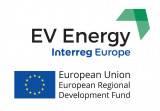
EV Energy paves the way for a future decarbonisation of the energy and mobility sector.
Articles by Green IT Amsterdam
- Removing the last hurdle to EV’s integration: policies and regulations overdue make-over
- Embracing the flexible energy revolution in urban cities
- EV ENERGY at the European Sustainable Energy Week
- Nieuwe mobiliteitsoplossingen vereisen slimme ICT / New mobility solutions require smarter ICT
- Opslag van energie Amsterdam Arena wijst datacenters de weg
Professionals Video
- RTL7 - Green Project (Dutch TV - We explain how your electric car can function as a small power plant!)
- EV Energy takes action! (Video on the actions planned in our partner regions to promote sustainable mobility and energy)
Newsletter: Semester 1, Semester 2, Semester 3, Semester 4,
Other materials:
- Policy brief on Sustainable Mobility: read here
- Webinar on E-Mobility: watch here
Subscribe to our newsletter and receive upfront all news, updates and events from the EV ENERGY project !
Felyx e-scooter sharing

Felyx offers shared electric scooters as a new urban mobility concept. Our convenient and affordable scooters can be located and activated through an app and parked at any destination ("free-floating").
Felyxoffers shared electric scooters as a new urban mobility concept. Our convenient and affordable scooters can be located and activated through an app and parked at any destination ("free-floating"). Our concept solves current urban mobility issues and combines possibilities and opportunities of new technologies, sharing economy, and sustainability.
SEEV4-City: Smart, clean Energy and Electric Vehicles for the City

SEEV4-City stands for ‘Smart, clean Energy and Electric Vehicles 4 the City’.The SEEV4-City project is exploring how to harness Information and Communication Technologies to structure the energy system in such a way that electric vehicles can be charged by locally produced renewable energy while utilising surplus energy stored in the car batteries. The project involves 7 operational, long-term pilots in 6 cities in 5 European countries.
SEEV4-City project partner Amsterdam ArenA launched on 30th November 2016 their Storage Project together with partners Nissan, EATON and The Mobility House, and is looking forward to further develop the functionality and possible services of this battery storage as part of the SEEV4-City Program.
More information
Stay up to date with this project through the official website: <http://www.northsearegion.eu/seev4-city/>
Or download this information:
http://www.northsearegion.eu/media/2502/seev4-city-_point-of-departure_brochure.pdf
<http://www.northsearegion.eu/media/3024/1706-smart-e-mobility-magazine-seev4-city-article.pdf>
http://www.northsearegion.eu/media/3244/170223_poster_seev4city.pdf
<http://www.northsearegion.eu/media/3162/towards-emission-free-traffic-in-amsterdam.pdf>
Action Program Smart Mobility 2016-2018- City of Amsterdam
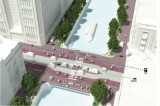
Improve the safety, accessibility, air quality, quality of life, and attractiveness of Amsterdam.
Check the Action Program Smart Mobility in English (link)
Check the Action Program Smart Mobility in Dutch (link)
Smart Electric Energy Boat

In this film you can see how it works in practice!
In this film you can see how it works in practice!
An operational smart energy grid
Partners
Stay up to date
Get notified about new updates, opportunities or events that match your interests.

